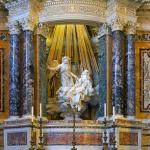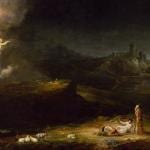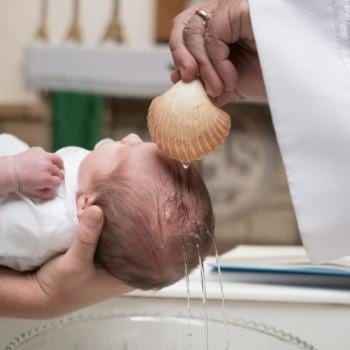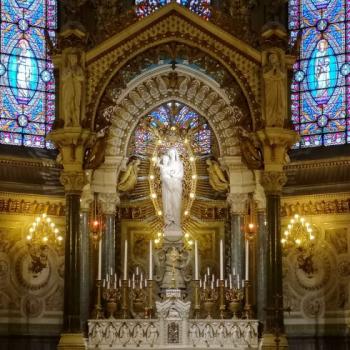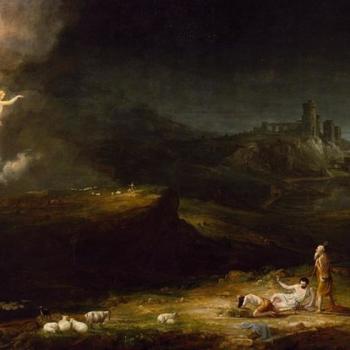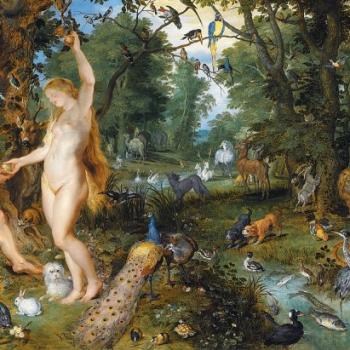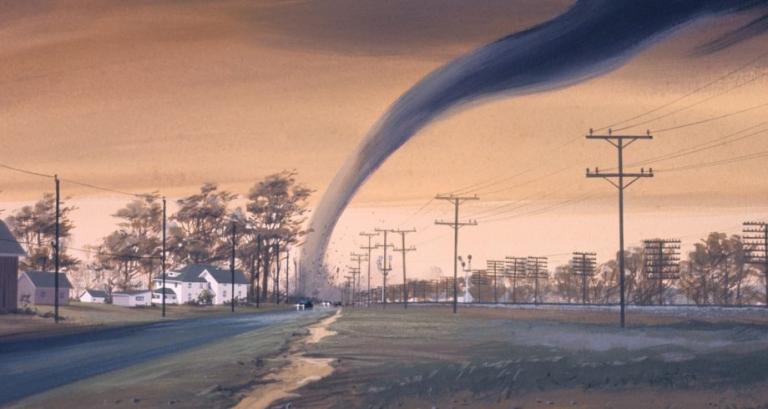
I’ve observed a certain phenomena among some writers in Progressive Christian circles, and an emphasis upon theodicy. Far me it from me to say that the problem of evil has not arisen in my own contemplations, nor indeed that its natural for it to arise at some point in everyone’s lives. That having been said, the repetition of the theme, particularly in this circle, seems to me to be so prominent because of a tendency within PC circles to focus more upon this world than the world to come, which they feel is a corrective to other circles that seem to only emphasize the hereafter at the expense of the here and now.
I’d like to propose that either excess of emphasis, when it comes at the expense of the other, is ill-placed. We are called to bring God’s kingdom to earth through our daily thoughts, words, and deeds here and now, but at the same time we are also to look forward with hope for the fulness of time when there will be a new heaven and a new earth, fully transparent to each other. We should keep the temporality and passing nature of this physical world ever on our minds, and remember that we are but ashes and dust, and the glories of this earthly realm will all pass away.
What I fear is that the eagerness to embrace social justice sometimes begins to become a bit of an idol, making this world seem more permanent than it is. It makes politics into a sort of religion, and purports that Utopia or Camelot is truly attainable by our own meager efforts. When they fail, as they always will, I notice many Progressive Christians will blame God. Why didn’t He make this place “better”? Why do we have to struggle and strive? Why doesn’t He break into the time and space and fix everything?
This is where things get a bit interesting, because it begins to sound like the protestations of Christ being the Messiah, since He didn’t overthrow throw the Romans and “fix everything” on a temporal level. Instead, according to Christian belief, He battled the powers of sin and death through self-expiation, showing Himself as the first fruits of the resurrection and the world to come, and calling us to be a part of His Body and His Kingdom here and now, yes, even in the “growing pangs” of the world.
But unfortunately, I recently read one such PC author who flat-out said, “Heck with it, I don’t want that kind of Messiah. I want someone who’s going to fix this world.”
See, at this point, I do want to ask…so why are you a Christian anyway? Christianity may be many things, but it doesn’t include the logic that we can just up and fix the world on our own power, nor that God is going to bust in and abolish the autonomy of beings and elements, tied to the time-space continuum, that enables “moral evil” and “natural evil” on this plane of existence. Frankly, if He did that, He would indeed destroy the created order. This is an imperfect world, but it’s imperfectly perfect, in that it fulfills potential that no perfect world could.
Why is it necessary? Why are we necessary? Well, I hate to say this, but these questions are going to get relegated into “trust God and tie your camel” section. I sometimes find myself gelling better with traditional Muslims on some of these issues than I do Progressive Christians. This is because they still have a strong sense of radical trust and submission. I am not saying there isn’t a healthy aspect of the Judeo-Christian history involving wrestling with God, but it can begin to verge on a drama fest and temper tantrum, not to mention just a bit blasphemous.
The fact is we are very finite, very breakable. Shaking our fist at God for making finite, breakable beings just seems dumb, since we are actually angered therefore at God giving and sustaining our lives. Questioning the goodness of God because “bad things happen” again seems to lose track of the greater story that we are all a part of, and that we all play a part in. Perhaps it is not our job to continually demand answers, nor even pose circular questions, but simply to live as if the Kingdom of Heaven dwells within us, so that when death comes, and we are spiritually laid bare, we will be children of that kingdom in spirit and truth.

